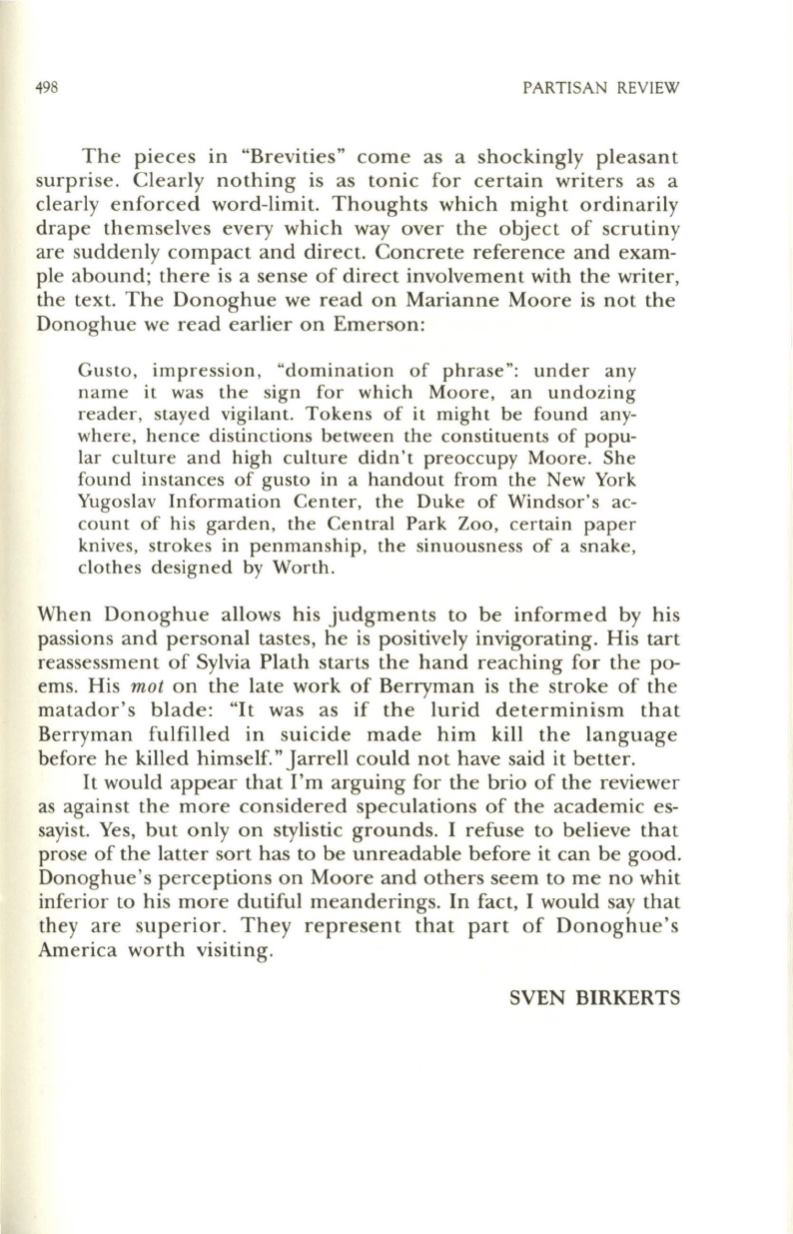
498
PARTISAN REVIEW
The pieces in "Brevities" come as a shockingly pleasant
surprise . Clearly nothing is as tonic for certain writers as a
clearly enforced word-limit. Thoughts which might ordinarily
drape themselves every which way over the object of scrutiny
are suddenly compact and direct. Concrete reference and exam–
ple abound; there is a sense of direct involvement with the writer,
the text. The Donoghue we read on Marianne Moore is not the
Donoghue we read earlier on Emerson:
Gusto, impression, "domination of phrase": under any
name it was the sign for which Moore, an undozing
reader, stayed vigilant. Tokens of it might be found any–
where, hence distinctions between the constituents of popu–
lar culture and high culture didn't preoccupy Moore. She
found instances of gusto in a handout from the New York
Yugoslav Information Center, the Duke of Windsor 's ac–
count of his garden, the Central Park Zoo, certain paper
knives, strokes in penmanship , the sinuousness of a snake,
clothes designed by Worth .
When Donoghue allows his judgments to be informed by his
passions and personal tastes, he is positively invigorating. His tart
reassessment of Sylvia Plath starts the hand reaching for the po–
ems. His
mot
on the late work of Berryman is the stroke of the
matador's blade: "It was as if the lurid determinism that
Berryman fulfilled in suicide made him kill the language
before he killed himself." Jarrell could not have said it better.
It would appear that I'm arguing for the brio of the reviewer
as against the more considered speculations of the academic es–
sayist. Yes, but only on stylistic grounds. I refuse to believe that
prose of the latter sort has to be unreadable before it can be good.
Donoghue's perceptions on Moore and others seem to me no whit
inferior to his more dutiful meanderings. In fact, I would say that
they are superior. They represent that part of Donoghue's
America worth visiting.
SVEN
BIRKERTS


